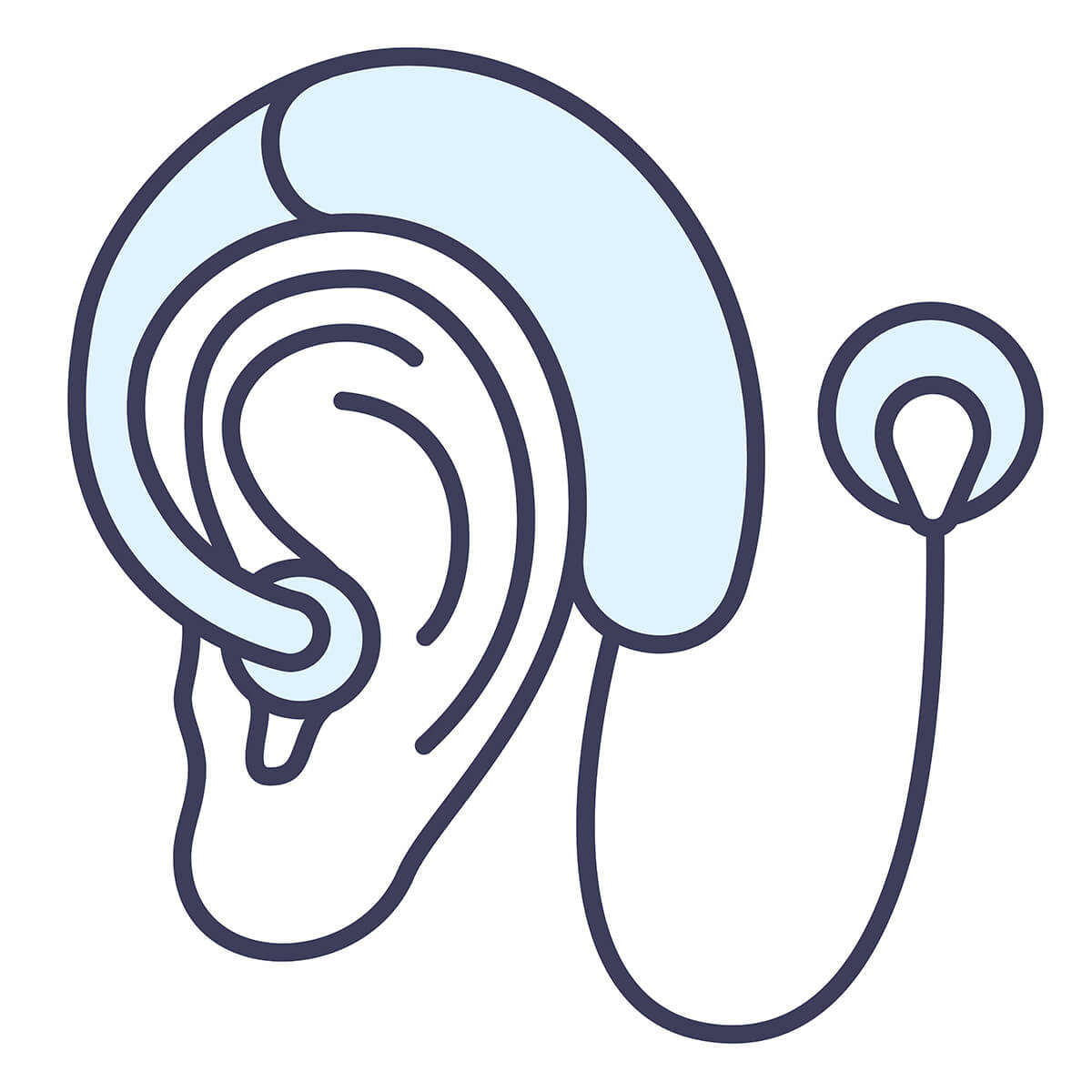Cochlear Implants
A cochlear implant is an electronic device that stimulates the cochlear nerve, providing the sense of sound. While hearing aids are the most common treatment for hearing loss, cochlear implants may be a more effective option for people with more profound or total hearing loss. At Midwest Ear Institute, we conduct thorough testing to identify the best solution for your hearing needs.
How does a cochlear implant work?
A cochlear implant consists of two components: an external portion that is worn behind the top portion of the outside ear and another part that is surgically inserted in the ear.
- External: the external portion of the cochlear implant consists of a microphone, speech processor, and transmitter. The microphone absorbs sound from the environment and the speech processor analyzes and organizes the sound. This sound then travels to the transmitter which codes the signals and sends them to the implanted portion of the device.
- Internal: the receiver, which is surgically placed behind the ear on the temporal bone, receives the signals from the transmitter and converts them into electrical pulses. It then sends these pulses to the electrode array (a group of electrodes) placed inside the cochlear which collects the impulses and sends them to the auditory nerve.
Surgery is performed under general anesthesia to implant the internal component of the cochlear device which takes between 2 to 4 hours. Anywhere between 4 to 6 weeks after the surgery (after the surgical site has healed), the external portion of the device will be fitted during a follow-up appointment. During this fitting appointment, the device will be turned on and programmed to meet the specific needs of the wearer.

Cochlear Implants at the Midwest Ear Institute
Dr. Ostrowski, our leading surgeon, specializes in cochlear implant surgeries. A trained otolaryngologist, his extensive knowledge and experience inform the expert care and attention he provides to patients. After the implantation surgery, your audiology follow-up is about four weeks later. During this appointment, the cochlear device will be activated and programmed effectively to your hearing needs. While the sound quality can be challenging in the beginning, after some practice and programming sessions, you will become increasingly comfortable and adjusted to hearing with your implant.
